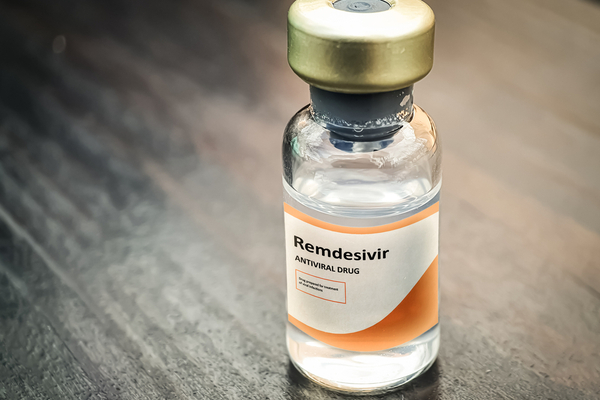Thanks in part to several Stanford University doctors, the FDA has granted emergency use authorization of the drug remdesivir to treat severely ill patients in the hospital. Under normal circumstances, drug studies and clinical trials would take years, but the Gilead and NIH studies took less than two months and show that 31 percent of patients who take remdesivir improve.
“We want to thank all the collaborators that have brought remdesivir to this point,” said Daniel O’Day, the CEO of Gilead, who was in the Oval Office Friday as the FDA and President Trump made the announcement. Gilead, a Foster City-based pharmaceutical company developed remdesivir, which is now the first COVID-19 drug approved by the FDA for emergency use authorization.
“Remdesivir works by preventing the virus from making more copies of itself,” said Dr. Aruna Subramanian, who was the co-lead on Gilead’s remdesivir study. Her work at Stanford Medical Center showed that patients did just as well on a five-day course of the drug as a 10-day course, which means more patients can take advantage of the current drug supply. Subramanian worked on AIDS clinical trials and explained why remdesivir, which does not cure COVID-19, is a critical milestone. “Our first drug was AZT in HIV, and then we added more drugs to the regimen to give an antiviral cocktail that really worked very, very well.”
The NIH study showed that patients taking the antiviral recovered faster, in 11 days, versus 15 days without the drug. The mortality rate was lower too — 11.6 percent in the placebo group and 8 percent in the treatment group.
Dr. Neera Ahuja also works at Stanford Medical Center. She was the primary investigator on a larger remdesivir study through the National Institutes for Health. “What they’ll now do is use remdesivir as the new placebo, the standard of care, and fold in other drugs along the way,” said Dr. Ahuja.Dr. Ahuja is beginning a new study next week involving baricitinib, a drug used to treat rheumatoid arthritis. “What if we look at how we interfere with the immune response that’s triggered by the virus and that’s what this next phase will look at.”
Dr. Ahuja expressed concerns about the supply of remdesivir, but O’Day said Friday that Gilead is ramping up production and that the government will decide how it’s distributed. “We want to make sure nothing gets in the way of these patients getting the medicine, so we made a decision to donate 1.5 million vials of remdesivir.”
Doctors can prescribe remdesivir right now, but it can only be administered via IV to patients in the hospital. Since most people will need medication at home, more studies about the delivery mechanism of remdesivir are in the works. A pill would be ideal, but nasal sprays and injections, like an insulin shot, are being studied for outpatient use.
In a statement, Gilead explained the Emergency Use Authorization. “The authorization is temporary and does not take the place of the formal new drug application submission, review and approval process. The EUA allows for the distribution and emergency use of remdesivir only for the treatment of COVID-19; remdesivir remains an investigational drug and has not been approved by FDA.”
—
Photo Credit: Sonis Photography / Shutterstock.com
